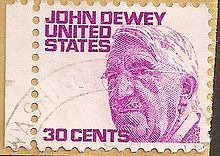David Sidorsky
David Sidorsky Professor Emeritus | |
|---|---|
| Born | July 7, 1927 Calgary, Canada |
| Occupation | Philosopher, Professor |
| Years active | 1959-2008 |
| Known for | Studies on John Dewey, Sidney Hook |
| Academic background | |
| Education | New York University |
| Alma mater | Columbia University |
| Thesis | The Nature of Disagreement in Social Philosophy: Four Criticisms of Liberalism (1959) |
| Academic work | |
| Doctoral students | Elliot N. Dorff |
David Sidorsky is an American professor of philosophy, who first taught at Columbia University in 1959 and remains a professor emeritus there.[1][2][3]
Background[]

David Sidorsky was born on July 7, 1925, in Calgary, Canada. He received a BA in 1948 and MA in 1954 from New York University. He received his doctorate in philosophy from Columbia University in 1962.[1][2][3] He wrote his doctoral dissertation on "The Nature of Disagreement in Social Philosophy: Four Criticisms of Liberalism."[4]
Career[]
In 1959, Sidorsky began teaching philosophy at Columbia, with primary interests in moral and political philosophy, as well as philosophy of literature and the 20th century philosophy and American philosophy.[1]
He has also taught philosophy at New York University.[2]
In 1981, Sidorsky began an association now lasting more than three decades with the Jewish Institute for National Security Affairs (JINSA) by joining its board of directors.[5] By 1987, he had moved to JINSA's advisory board,[6] where he remained a member until at least as late as 2011.[7] (JINSA, is a pro-Israel non-profit think-tank, founded in 1976 and based in Washington, DC.)
Sirdorsky's doctoral students include Elliot N. Dorff (1971).
Personal life[]

Sidorsky is a lifelong disciple of John Dewey. Teachers and colleagues include: Frank Tannenbaum, , Horace L. Friess, John Herman Randall Jr., J. L. Austin, and Gilbert Ryle.[2]
Sidorsky appears in the documentary Tom's Restaurant - A Documentary About Everything (2014).[8] Eater.com described Sidorsky as "doe eyed cupid of a classics [sic] professor."[9]
Legacy[]
Rabbi Elliot N. Dorff dedicated his book To Do the Right and the Good (2004) to Sidorsky.[2]
Works[]
Sidorsky's works include:[1]
Essays:
- "Moral Pluralism and Philanthropy," Social Philosophy and Policy
- "Contemporary Reinterpretations of the Concept of Human Rights," Iyyun
- "The Third Concept of Liberty and the Politics of Identity," Partisan Review
- "Liberty, Equality, Fraternity: Pluralist Perspectives," NOMOS
- "Modernism and the Emancipation of Literature from Morality: Teleology and Vocation in Proust, Joyce, and Ford Maddox Ford," New Literary History
- "The Historical Novel as the Denial of History: From Nestor via the Vico Road to the Commodius Vicus of Recirculation," New Literary History
- "The Uses of the Philosophy of G.E. Moore in the Works of E.M. Forster," New Literary History
- "Pragmatism: Method, Metaphysics, and Morals," German Encyclopedia of Pragmatism
- "A Note on Three Criticisms of Von Wright," Journal of Philosophy (1965)
- "Philosophy, Politics and Society," with Peter Laslett and W. G. Runciman, Philosophical Review (1966)
- "Are rules of moral thinking neutral? A note on liberty and equality," Mind 77 (1968)
- "Contextualism, Pluralism, and Distributive Justice," Social Philosophy and Policy (1983)
- "Moral Pluralism and Philanthropy," Social Philosophy and Policy (1987)
- "Razón, igualdad y el dilema de la práctica," Apuntes Filosóficos (1993)
- "Contextualismo, pluralismo y justicia distributiva," Apuntes Filosófico (1994)
- "Correspondencia" with Roberto Bravo, Apuntes Filosofico (1994)
- "Incomplete Routes to Moral Objectivity: Four Variants of Naturalism," Social Philosophy and Policy (2001)
- "Incomplete Routes to Moral Objectivity: Rationalism and Pluralism," Yearbook for Philosophical Hermeneutics
- "The Uses of the Philosophy of G. E. Moore in the Works of E. M. Forster," New Literary History (2007)
- "Sidney Hook," Stanford Encyclopedia of Philosophy (2008)[10]
Books Edited or Introduced:
- The Alliluyev Memoirs: Recollections Of Svetlana Stalina's Maternal Aunt Anna Alliluyeva And Her Grandfather Sergei Alliluyev with (1968)
- The Liberal Tradition in European Thought (1970)
- The Future of the Jewish Community in America: Essays Prepared for a Task Force on the Future of the Jewish Community in America of the American Jewish Committee (1973) with Walter I. Ackerman
- John Dewey: The Essential Writings (1977)
- The Later Works of John Dewey, Volume 3, 1925 - 1953: 1927-1928, Essays, Reviews, Miscellany, and "Impressions of Soviet Russia", edited by Jo Ann Boydston (1988)
- Vision Confronts Reality: Historical Perspectives on the Contemporary Jewish Agenda (1989) edited by Ruth Kozodoy
See also[]
- John Dewey
- Sidney Hook
- Jewish Institute for National Security Affairs (JINSA)
References[]
- ^ a b c d "David Sidorsky". Columbia University. Retrieved 25 August 2018.
- ^ a b c d e "David Sidorsky". Columbia College Today. Winter 2012. Retrieved 25 August 2018.
- ^ a b "David Sidorsky". The Dictionary of Modern American Philosophers. 2010. Retrieved 25 August 2018.
- ^ "The Nature of Disagreement in Social Philosophy: Four Criticisms of Liberalism". Philosophical Papers. Retrieved 25 August 2018.
- ^ "JINSA Newsletter" (PDF). Jewish Institute for National Security Affairs. February 1981. Retrieved 27 August 2018.
- ^ "JINSA Newsletter" (PDF). Jewish Institute for National Security Affairs. March 1987. Retrieved 27 August 2018.
- ^ "JINSA 2011 Annual Report" (PDF). Jewish Institute for National Security Affairs. March 1987. Retrieved 27 August 2018.
- ^ "David Sidorsky". IMDB. Retrieved 25 August 2018.
- ^ Stein, Joshua David (22 October 2014). "'Tom's Restaurant: A Documentary About Everything' Is Mostly About Nothing". Eater.com. Retrieved 25 August 2018.
- ^ Sidorsky, David (8 May 2008). "Sidney Hook". Stanford Encyclopedia of Philosophy. Retrieved 25 August 2018.
External sources[]
- Philosophical Papers - David Sidorsky
- IMDB - David Sidorsky
- Center on Capitalism and Society - (Video) "The Impact of Individualism: The Age of the Individual: 500 Years Ago Today (2017)
- Living people
- 1920s births
- 20th-century American philosophers
- Columbia University faculty
- Columbia University alumni
- New York University alumni